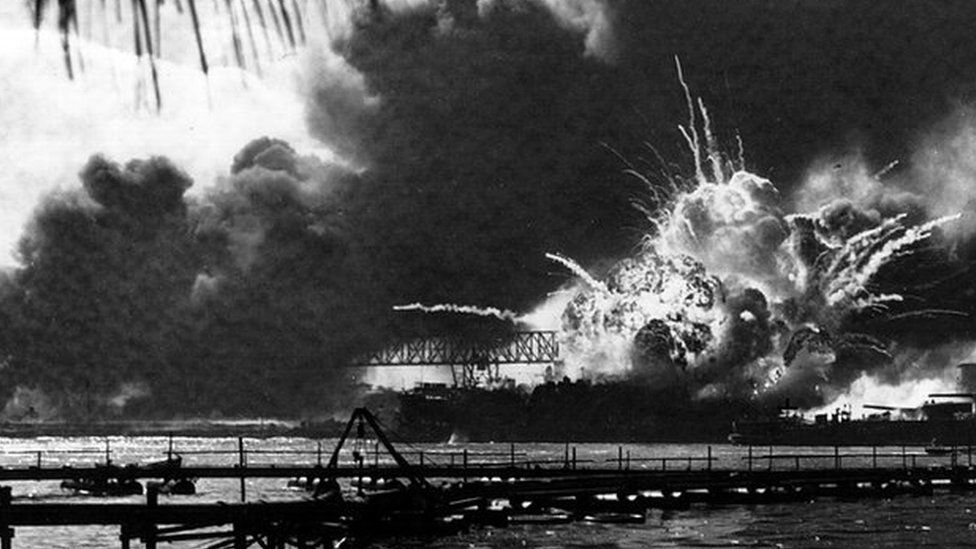By Nathan WilliamsBBC News

The family of a US sailor killed at Pearl Harbor have finally been able to see him laid to rest, 80 years after the World War Two attack.
Herbert Jacobson was buried in Arlington National Cemetery after modern forensic testing allowed his remains to be identified.
To finally know what happened to the sailor gives the family "closure", a nephew told news agency AP.
He was among the thousands killed or injured in the Japanese assault.
The surprise Japanese strike on the the naval base in Hawaii on 7 December 1941 propelled the US into the war.
"Bert" Jacobson, who was 21, was among 400 sailors who lost their lives on board the USS Oklahoma - one of four battleships sunk by Japanese torpedoes.
It was two years before their bodies were recovered, but many could not be identified.
Repeated attempts were made to put a name to all the victims, but it was not until the deployment of the latest DNA analysis that Jacobson's remains were identified in 2019.
He was buried in Arlington National Cemetery in Virginia, across the river from Washington DC, on Tuesday. The ceremony had been delayed by the pandemic and was attended by descendants who had never had a chance to know him.
"This has kind of been an unsolved mystery and it gives us closure to finally know what happened to Bert, where he is and that he's being finally laid to rest after being listed as an unknown for so long," nephew Brad McDonald told AP.
After failed attempts to identify the Pearl Harbour victims - including via dental records - a new campaign was launched in 2003, and then another in 2015, to use more advanced identification techniques, including via DNA.
Those attempts had given new hope to Jacobson's family - who told AP that Bert's mother cried every 7 December, at least partly because she never knew where he was.
The attack on Pearl Harbor was the deadliest on American soil until the September 11 terror attacks in New York in 2001.
Within two hours of the 1941 assault, more than 2,400 Americans had been killed and most of the US fleet stationed at the Pacific base was damaged or destroyed.
The next day, US President Franklin Roosevelt declared war on Japan and America entered World War Two.
Pearl Harbor, in Hawaii, is still an active naval base, a museum and a national monument to those who were killed in the attack.
You may also be interested in:
-
- 28 December 2016
-
- 2 December 2015
-
- 25 November 2016


comment 0 Comments
more_vert